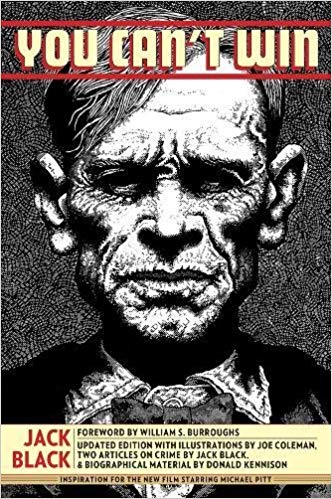 Accounts of immigrants from Central America have lately tended to see them as either outright criminals or hapless victims. The latter are abused right from the beginning, then suffer untold indignities as second-class citizens once they arrive in the agricultural “sweat shops” of the North. Truth be told, Americans want their food and foreign products as cheap as possible.
Accounts of immigrants from Central America have lately tended to see them as either outright criminals or hapless victims. The latter are abused right from the beginning, then suffer untold indignities as second-class citizens once they arrive in the agricultural “sweat shops” of the North. Truth be told, Americans want their food and foreign products as cheap as possible.
Boss-employee relations in The Grapes of Wrath (1939) still instruct us. California companies lured people desperate for work, while advertising dreamy lifestyles in the Golden State. Today, the Democratic Party does the same, but uses welfare programs as part of the bait. To these neo-colonialists, the poor are little more than abstractions.
The same was also true in America more than a hundred years ago, as professional thieves and hobos plied their trades as professionals, good guys, with plenty of morals and good cheer for their own sort. Jack Black’s memoir You Can’t Win (1926) reveals a likable personality who pursued an entire life of stealing from others, though without otherwise wanting to hurt them. As Wikipedia reports, “The book tells of Black’s experiences in the hobo underworld, freight-hopping around the western United States and Canada, with the majority of incidents taking place from the late 1880s to around 1910. He tells of becoming a thief, burglar, and member of the yegg(safe-cracking) subculture, exploring the topics of crime, criminal justice, vice, addictions, penology, and human folly from various viewpoints, from observer to consumer to supplier, and from victim to perpetrator.”
In the Dakotas at harvest time, Black describes how innocent field workers, not unlike immigrants today, were systematically robbed: “I made long jumps under fast trains into St. Paul and then on to the Dakota harvest fields. Thousands of harvest hands were leaving with their season’s earnings and a horde of yeggs, thieves, gamblers and their women beset them on every side. Some of the more wary and experienced laborers bought tickets and got out of the danger zone unscathed; others dallied with the games of chance and were shorn, or fell into the yeggs’ clutches and got catted up.
“Harvest workers were called blanket stiffs or gay cats, and the process of pistoling them away from their money was known as catting them up. Train crews flourished by carrying the gay cats over their divisions in the box cars at a dollar each. Bands of yeggs worked with the brakemen, who let them into the cars, where they stuck up the cats, took their money, and forced them to jump out the side doors between stations. By the time they walked into a town and reported their losses, the train was far ahead, the money split with the train crew, and the yeggs were holding a convention in some safe jungle.“
Black and his cohorts traveled by riding the rails, and so did most of the harvest hands. Finally, “After several seasons the cats began buying tickets out of the harvest fields and the profitable industry of catting up went by the board.”
In contrast, Central American immigrants have the deck stacked against them. Many don’t speak English and can’t complain about ill treatment since they have entered the country illegally. It’s not simply a matter of getting a bit wiser. Meanwhile, if they stay, they’ve lost their identity. They become melting pot Americans. Gone is their tropical paradise where, though equally poor like others, they were not despised as a social underclass.


Today the media is almost monomaniacally bent on reinforcing the latest version of liberal orthodoxy. Over and over, the same message, repeatedly endlessly in dramas, news, and commercials. If one attack dog dies, then another comes forward to play the role. Out with McCain, in with Romney. You can’t win.
Jack Black reminds us that any kind of thinking will seem normal if that’s all you expose yourself to: “From the day I left my father my lines had been cast, or I cast them myself, among crooked people. I had not spent one hour in the company of an honest person. I had lived in an atmosphere of larceny, theft, crime. I thought in terms of theft. Houses were built to be burglarized, citizens were to be robbed, police to be avoided and hated, stool pigeons to be chastised, and thieves to be cultivated and protected. That was my code; the code of my companions. That was the atmosphere I breathed. If you live with wolves, you will learn to howl.”